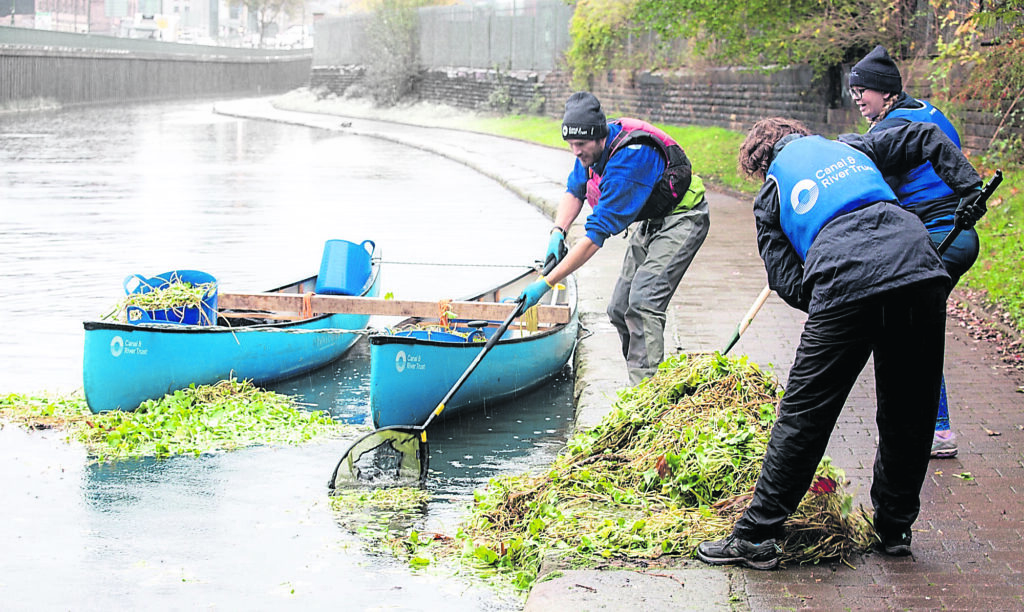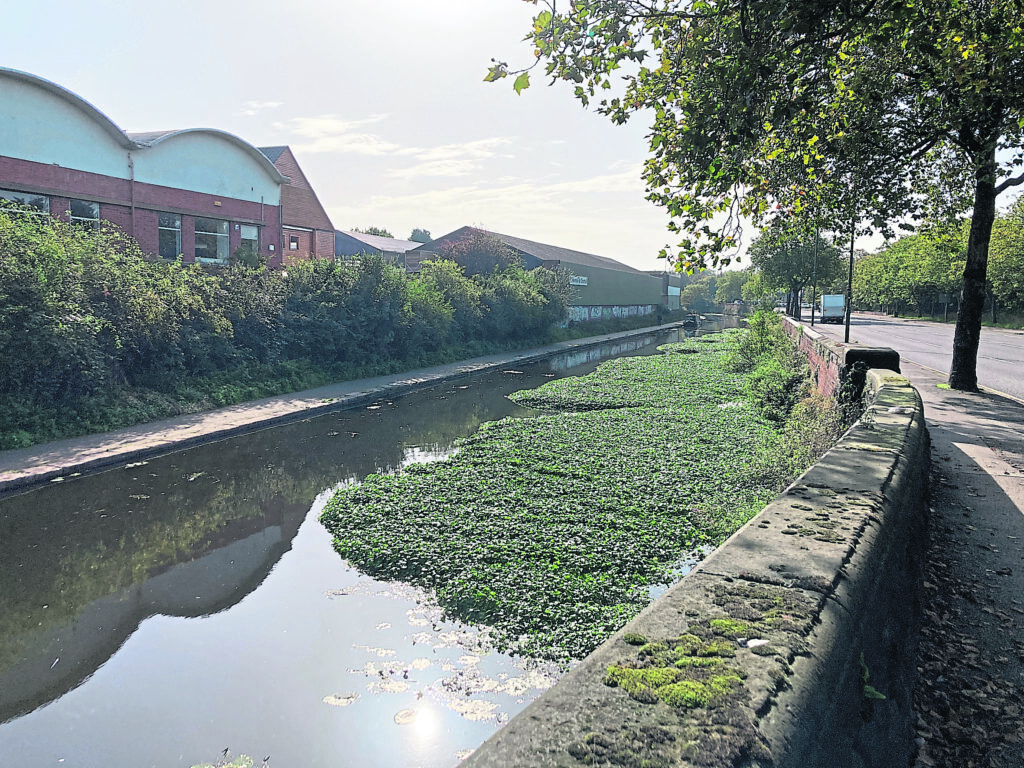A FLOATING digger is the latest weapon being used by the Canal & River Trust to tackle invasive weeds in the waterways.
The trust has spent £1 million a year on various methods to tackle plants which clog the canals and rivers it looks after. There is even a UK conference later this month which will look at methods of fighting weeds.

The latest effort is focused on the Nottingham & Beeston Canal as part of a major community effort to protect waterways across the East Midlands.
The charity enlisted the help of specialist contractor Rothen to remove large mats of floating pennywort from the full five-mile length of the canal, which runs from Meadow Lane Lock to Beeston.
Richard Bennett, environment and heritage manager for the Canal & River Trust, said: “Floating pennywort is a particular menace, and if we didn’t tackle it then it would choke our canals, preventing navigation and causing real damage to the wildlife that calls them home. This year has seen a huge team effort taking place across the East Midlands to remove as much of the weed as possible.
“Contractors, volunteer groups and canoe clubs have joined forces to help us remove a staggering amount of the weed and protect our waterways for all those that enjoy them as well as our precious native species.
“Tackling the weed is a never-ending task and we’re supporting the terrific work done so far by bringing in a floating digger to clear the entire Nottingham & Beeston Canal.”

Floating pennywort, originally introduced into the UK in the 1980s as an ornamental plant for garden ponds, can grow up to 20cm in a day and double its weight in as little as three days. If left unchecked it can spread in large clumps over the surface of the water, smothering native plants and depriving the water of both light and oxygen which endangers the fish living beneath. It can also block overflow sluices, causing flooding, and restrict boating by clogging up propellers.
Over time floating pennywort has spread on to a number of waterways in the East Midlands and since May the trust has led a huge community effort that’s seen contractors, local businesses, volunteers and canoe clubs working together to remove more than 500 tonnes of the weed from the region’s waterways. Events included:
• In Nottingham a series of corporate activities saw staff from local businesses giving their time to help remove the weed from the city’s canal.
• In Leicestershire contractors have been working their way along a 35km stretch of the River Soar and Grand Union Canal between Aylestone Meadows in Leicester and Kegworth.
• The trust’s Towpath Taskforce volunteers in Derbyshire have given more than 40 days to remove pennywort from the Trent & Mersey Canal.
• Canoeists and paddleboarders from PaddleUK and numerous local clubs have been helping across the region, pulling pennywort out from all the hard-to-reach places. The most effective way to eradicate the weed is to physically remove it so teams have been working together to pull it up out of the water and haul it on to dry land where it will gradually degrade.



